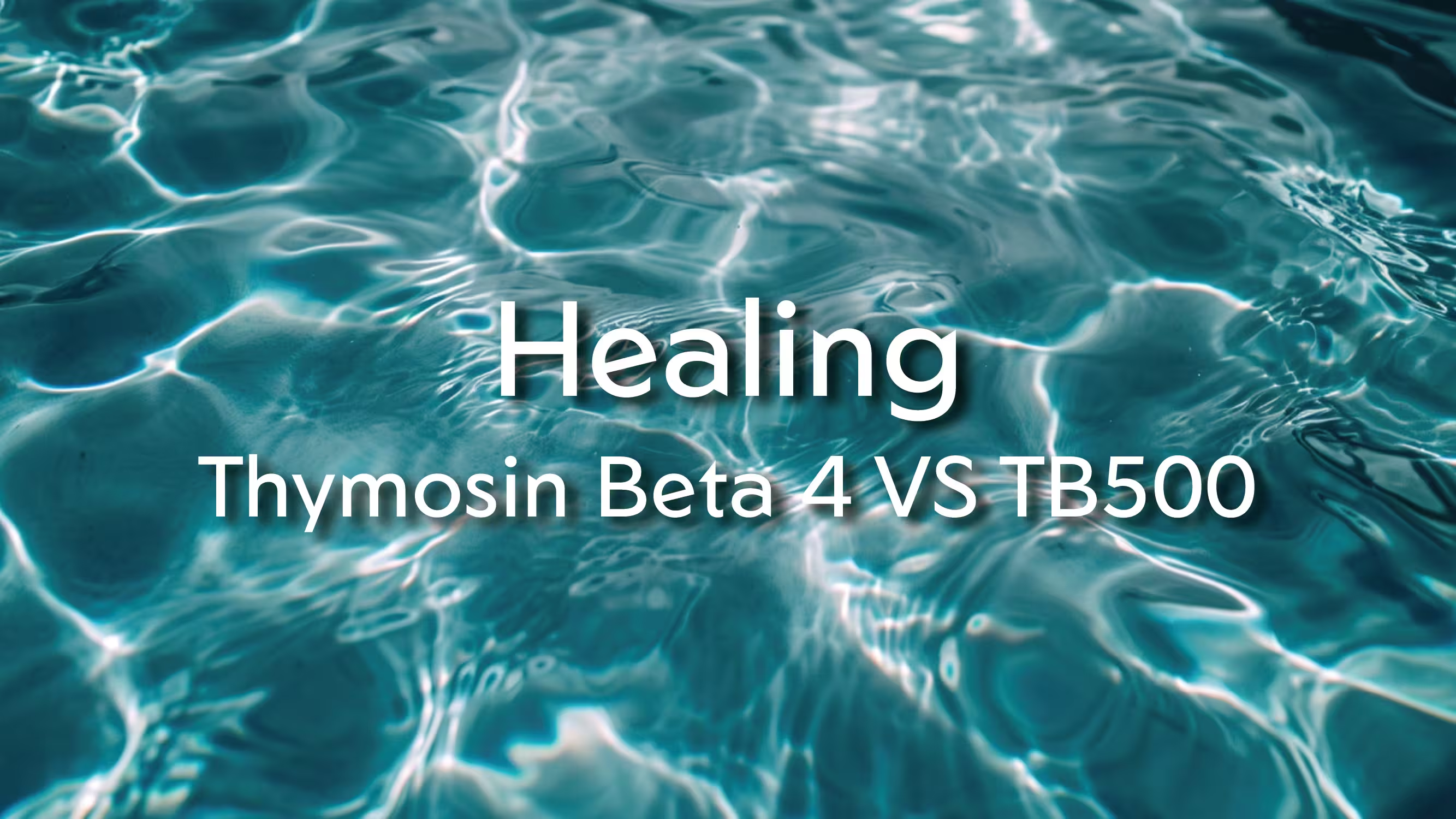Thank you! Your submission has been received!
Oops! Something went wrong while submitting the form.
No Results found.
Please try different keywords.

From athletes to anti-aging enthusiasts, more and more people are turning to peptides for faster healing, tissue regeneration, and reduced inflammation but in this world of cell-repair miracles, two names stand out — Thymosin Beta-4 and TB-500.
They sound similar… so, what’s the difference? And more importantly, which one is right for recovery, longevity, or performance? Let’s break it down.
Thymosin Beta-4 is a naturally occurring peptide that plays a significant role in tissue repair and regeneration. It is known for its ability to promote cell migration, which is essential for healing wounds and injuries. TB4 is particularly effective in reducing inflammation and promoting the formation of new blood vessels, making it a valuable asset in recovery protocols.
TB500, on the other hand, is a synthetic version of Thymosin Beta-4. While it shares many of the same properties as TB4, TB500 is often used in a more targeted manner for specific injuries. It is known for its ability to enhance muscle repair and improve recovery times, particularly in athletes.
While both peptides are derived from the same source, their applications and effects can differ:
While TB-500 is highly effective—especially for targeted healing and injury recovery—the full Thymosin Beta-4 peptide offers broader, more powerful benefits. Think of TB-500 as a specialist, and TB4 as a multitasking expert. Both are valuable, but TB4 provides a wider range of regenerative support.